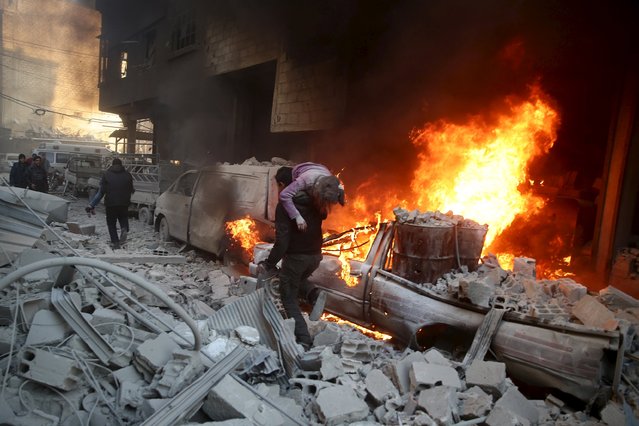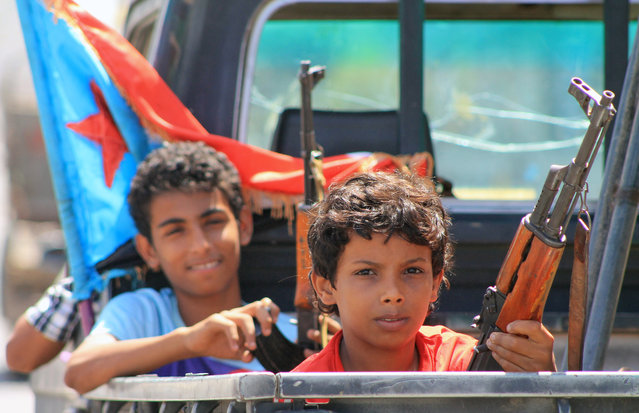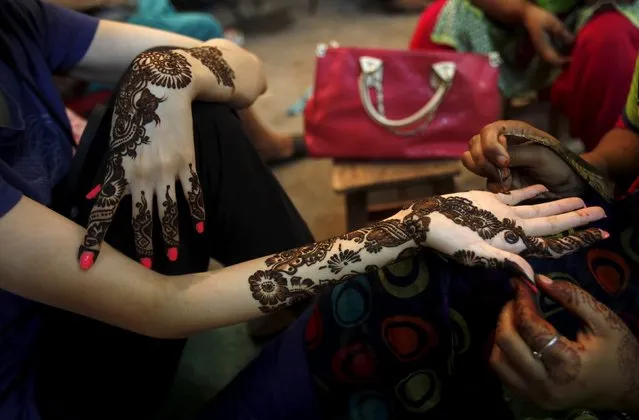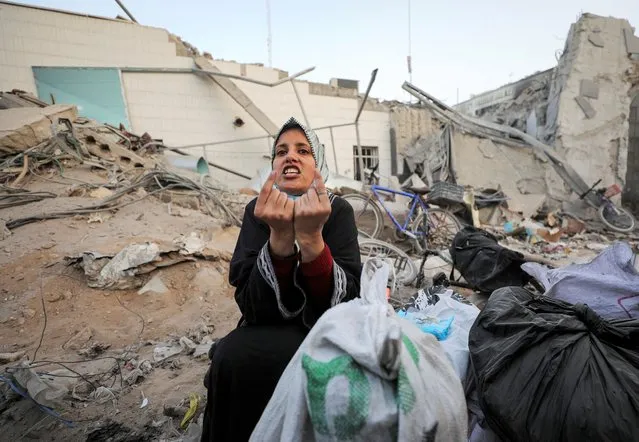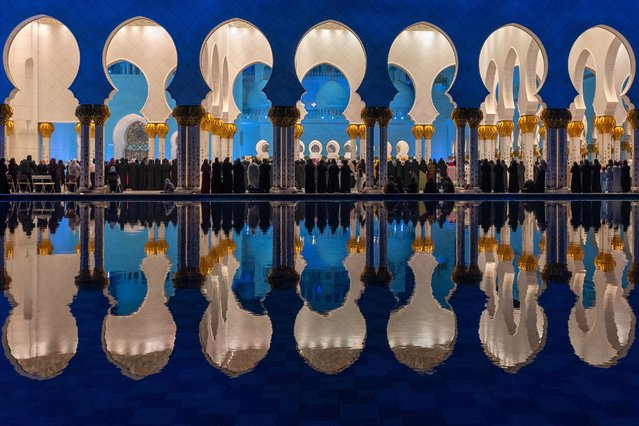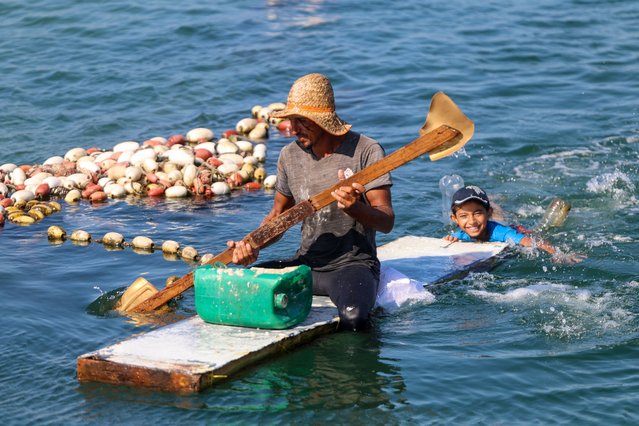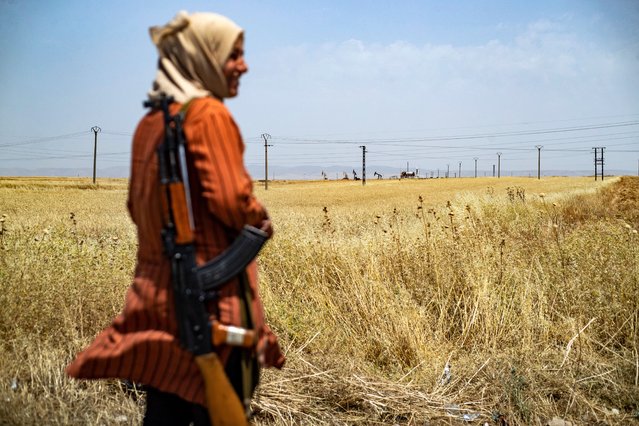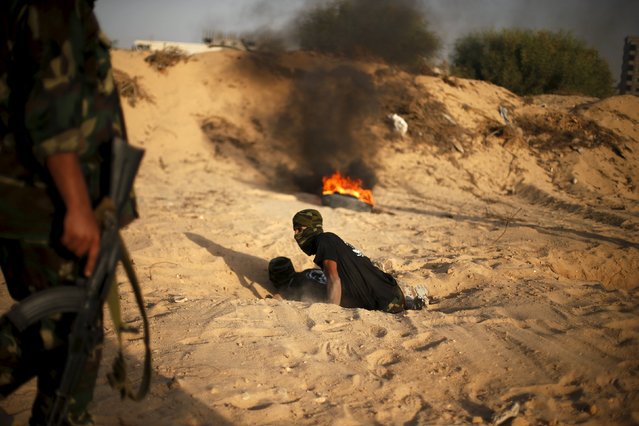
Palestinian militants from al-Husine brigade loyal to Fatah movement exits from a tunnel during during a military-style exercise graduation ceremony in Khan Younis in the southern Gaza Strip, September 20, 2015. (Photo by Suhaib Salem/Reuters)
22 Sep 2015 08:00:00,post received
0 comments

